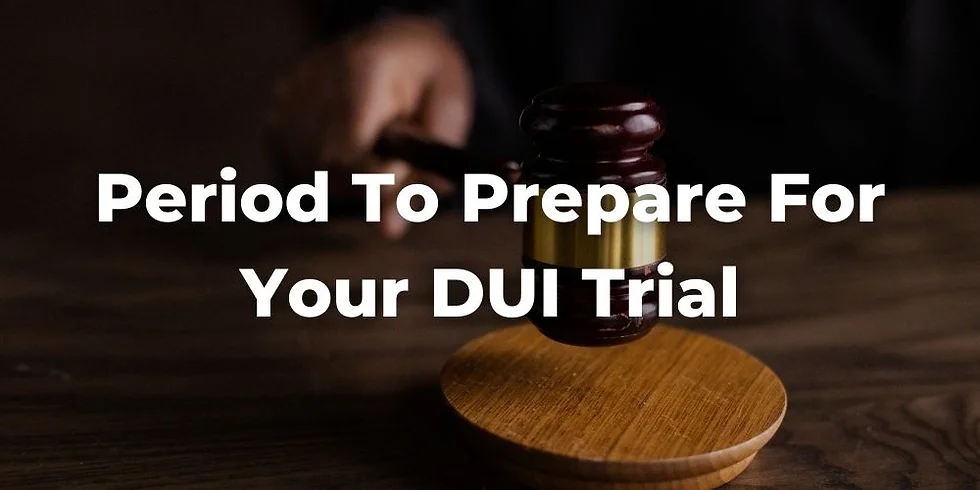A DUI hearing is a critical part of the legal process following a DUI arrest. Proper preparation can make a significant difference in the outcome of your case. Here are essential tips and guidelines to help you prepare for a DUI hearing.

Understanding the DUI Hearing
Purpose of the DUI Hearing
The DUI hearing is conducted to determine whether your driving privileges should be suspended or revoked. It is separate from the criminal trial and focuses on the administrative aspects of your case, such as the legality of the traffic stop and the accuracy of the chemical tests.
Types of Hearings
- DMV Hearing: Typically focuses on the suspension of your driver’s license.
- Criminal Court Hearing: Addresses the criminal charges related to the DUI, such as fines, jail time, and other penalties.
Gathering Evidence
Obtain the Police Report
Request a copy of the police report. This document contains critical information about the arrest, including the officer’s observations, the results of field sobriety tests, and any chemical test results.
Collect Chemical Test Results
Secure copies of any chemical test results, such as breathalyzer, blood, or urine tests. These results are crucial pieces of evidence in your case.
Gather Witness Statements
If there were any witnesses to your arrest or the events leading up to it, obtain their statements. Witness testimony can provide valuable support for your defense.
Compile Medical Records
If you have any medical conditions that could have affected your behavior or the test results, gather relevant medical records. These documents can help explain anomalies and support your defense.
Hiring an Experienced DUI Attorney
Importance of Legal Representation
An experienced DUI attorney can navigate the complexities of the legal system, challenge the prosecution’s evidence, and advocate on your behalf. Their expertise is invaluable in preparing a strong defense.
Choosing the Right Attorney
When selecting a DUI attorney, consider their experience, track record, and familiarity with local DUI laws and court procedures. A knowledgeable attorney can significantly influence the outcome of your case.
Preparing Your Defense
Review the Evidence
Work with your attorney to review all the evidence in your case. Identify any weaknesses or inconsistencies in the prosecution’s evidence and develop strategies to challenge them.
Develop a Defense Strategy
Your defense strategy may include questioning the accuracy of chemical tests, challenging the legality of the traffic stop, and presenting evidence of medical conditions that could have affected your performance on field sobriety tests.
Plan for Cross-Examination
Prepare to cross-examine the arresting officer and any other witnesses presented by the prosecution. Your attorney will guide you on the best questions to ask to undermine their credibility and challenge their testimony.
Practical Tips for the Hearing
Be Punctual
Arrive at the hearing early. Punctuality demonstrates respect for the court and allows you time to compose yourself before the proceedings begin.
Dress Appropriately
Dress professionally for the hearing. Your appearance can influence the judge’s perception of you and reflect your seriousness about the matter.
Stay Calm and Respectful
Maintain a calm and respectful demeanor throughout the hearing. Address the judge, the prosecutor, and all court personnel with courtesy. Avoid interrupting or arguing.
Follow Your Attorney’s Advice
Listen to your attorney’s guidance and follow their instructions closely. They have the experience and knowledge to navigate the hearing effectively.
What to Expect During the Hearing
Opening Statements
The hearing typically begins with opening statements from both the prosecution and the defense. These statements outline the key points each side intends to prove.
Presentation of Evidence
Both sides will present their evidence, which may include testimony from witnesses, police reports, and chemical test results. The prosecution will present its case first, followed by the defense.
Cross-Examination
Your attorney will have the opportunity to cross-examine the prosecution’s witnesses. This is a critical part of the hearing, as it allows the defense to challenge the credibility and reliability of the evidence presented.
Closing Arguments
After all evidence has been presented, both sides will make closing arguments. These arguments summarize the key points of the case and aim to persuade the judge or hearing officer to rule in their favor.
The Judge’s Decision
The judge or hearing officer will then make a decision based on the evidence and arguments presented. This decision could result in the suspension or revocation of your driver’s license, fines, or other penalties.
After the Hearing
Possible Outcomes
- License Suspension: Your license may be suspended for a specified period.
- License Reinstatement: If the judge rules in your favor, your driving privileges may be reinstated.
- Additional Penalties: You may face fines, mandatory DUI education programs, or other penalties.
Appeal Process
If you are dissatisfied with the outcome, you may have the option to appeal the decision. Consult with your attorney to understand the appeal process and determine the best course of action.
Conclusion
Preparing for a DUI hearing involves understanding the process, gathering evidence, and working closely with an experienced attorney. By following these essential tips and guidelines, you can improve your chances of achieving a favorable outcome. Remember, thorough preparation and a strong defense are key to navigating the complexities of a DUI hearing successfully.










